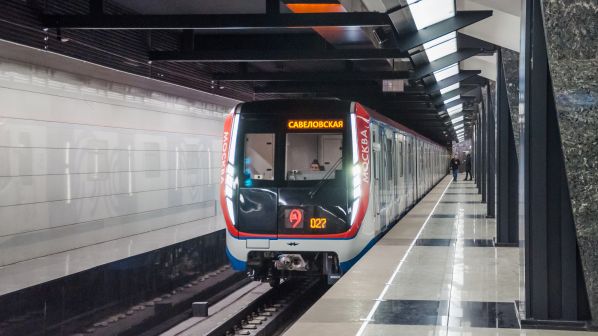MOSCOW Metro received 551 new metro cars in 2020, including 335 new-generation Moskva-2020 cars that are now in service on lines 5 and 6, the deputy mayor for transport, Mr Maxim Liksutov, announced during an update to the Moscow Government Presidium on Moscow Transport’s work over the last year.
The new trains increased capacity by 500,000 additional seats. The renewal of the Moscow Metro fleet is now 63% complete, with 3548 new cars purchased since 2010.
The integration of the Moscow Central Circle (MCC) with the radial directions of the railway and metro was also completed last year.
Moscow Metro has also increased the working hours of the Passenger Mobility Centre, which provides assistance for passengers with reduced mobility, at the request of Moscow residents. The centre now offers support over the metro’s full opening hours, from 05:30 to 01:00.
As Moscow didn’t enter a full lockdown to curb the Covid-19 pandemic, the metro continued to operate at its normal timetable, and Liksutov says development continued at the regular pace. The metro also provided more than 51,000 free tickets and waived more than 90,000 parking fees at stations to support essential workers such as doctors and nurses.
Liksutov says 15 new and reconstructed Moscow Central Diameter (MCD) stations were opened last year. The rolling stock renewal programme was also completed, with new trains operating on the D1 and D2 lines. MCD services reduced headways between services to at a maximum of six minutes throughout the day, replacing the previous timetable which had intervals of up to two hours between trains. This has allowed nearly 80% of passengers to reduce their journey time by up to 44 minutes a day.
Following the announcement of a FacePay project in September, all Metro and MCC stations have been equipped with cameras with face recognition modules.
Liksutov says plans for 2021 include the opening of stations on the Big Circle Line (Line 11) and the delivery of 337 new Moskva-2020 railcars, as well as the construction or reconstruction of 11 Moscow Metro stations. A “virtual” Troika pay-as-you-go travel card project will also be launched this year.

